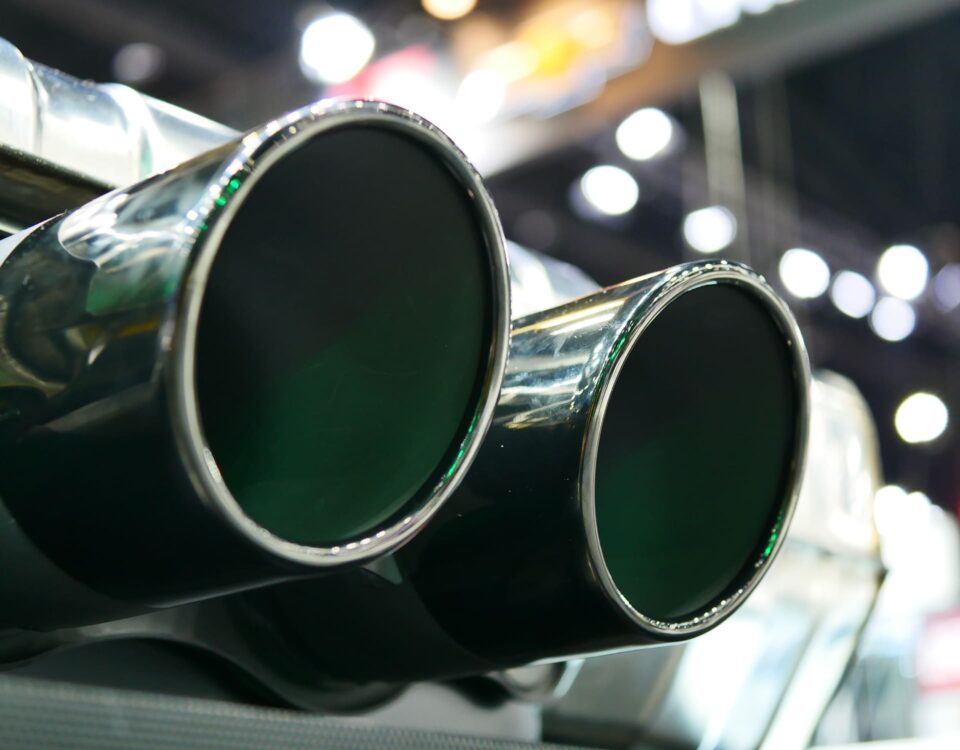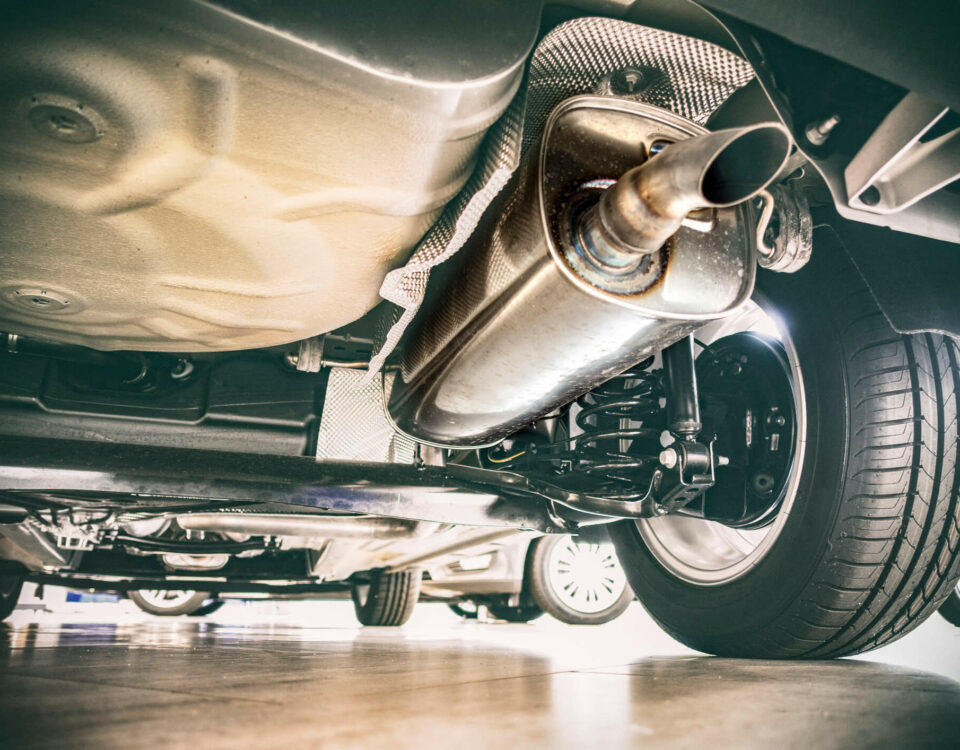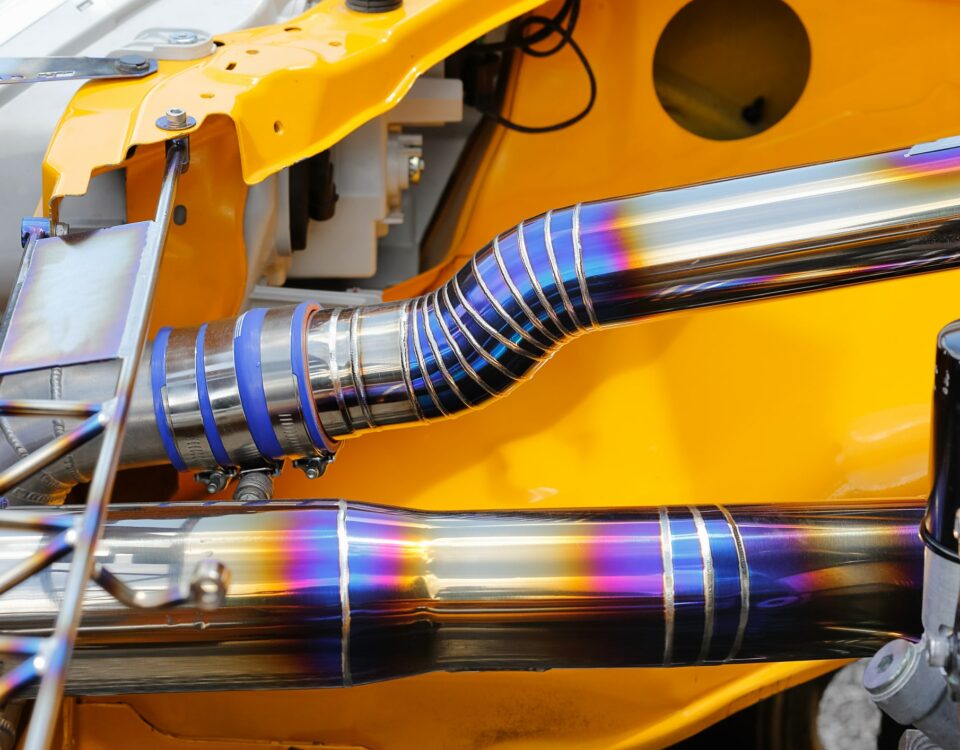How Mufflers Work – A Complete Overview
A vital – but often overlooked – component of vehicles is the muffler; a small device fitted to the end of an exhaust system to manage engine noise and improve performance. Whether you drive an ordinary diesel van or a petrol-powered supercar with a fancy performance exhaust system, pretty much all vehicles with combustion engines use mufflers.
What does a muffler do?
Mufflers, also known as silencers (not to be confused with gun silencers), are fitted to the exhaust pipes of vehicles to dampen the noise of their engines. Generally made from steel and fitted near the end of a vehicle’s exhaust system, mufflers are required by UK law and included as standard on all road vehicles – except for electric vehicles – whether they have a stock or performance exhaust system.
How do mufflers work?
Mufflers are typically made from a metal tube filled with sound baffles (dividing walls and chambers designed to trap moving gases and reduce noise) and fibreglass. These components work to reduce the noise of vehicles by redirecting and slowing exhaust gases, through several different methods:
Absorption:
Fibres within the muffler (typically fibreglass, thanks to its heat resistance) absorb sound waves from the exhaust and slow down the speed they are traveling through the exhaust, lowering noise levels.
Diffusion:
Mufflers also feature baffles (dividers separating the main chamber) and spacers which trap some of the exhaust gases, slowing the speed the gases exit the exhaust and lowering noise levels.
Advantages of Using Mufflers:
Reduced Noise pollution:
As the primary function of mufflers is to reduce the noise that your engine produces, they significantly reduce noise pollution and help to keep your car within safe and legal noise limits. Although many car enthusiasts will tinker with performance exhaust systems and even remove mufflers from their vehicles for ‘improved’ sound, we must point out that it is illegal to remove or disable your muffler in the UK.
Which is Better – Straight Pipe Exhausts or Mufflers?
Exhaust systems that do not feature mufflers are commonly called ‘straight pipe’ systems, as the pipe goes straight out of your car, as it were. These systems result in much higher noise levels and slightly improved performance, as the reduced obstruction allows for a quicker flowing exhaust.
While many people prefer louder straight pipe systems, UK motoring laws dictate that your vehicle must NOT exceed certain decibel levels, meaning that a muffler is required in nearly all cases. Additionally, diesel vehicles must feature exhaust filters (known as Diesel Particulate Filters or DPFs) to reduce harmful emissions, in addition to mufflers that lower noise levels.
Does muffler make the car louder?
Mufflers are specifically designed to muffle sound and make your exhaust system quitter – the only way they could possibly make your car louder is if they are malfunctioning. If your muffler is making odd sounds or failing to muffle the noise of your engine, you should consult a mechanic and try to fix or replace it.
A muffler is a device in the exhaust system that is specified to depress the sound of the engine, so it does not make a car louder. The only possible circumstances in which a muffler can make a car louder is a bad muffler or a design of a muffler that does not restrict sound. The problems in a muffler and its components, like the resonator, do not let it perform its function. As a result, the sound waves exit muffler without a treatment causing a loud sound. The muffler designs that make a car loud are straight through and chambered muffler.
In conclusion:
Mufflers are an essential (and legally required) component of a vehicle’s exhaust system, helping to regulate the speed of exhaust output and lowering noise to safe levels. While there are many aftermarket options that can improve or remove these benefits, it is currently illegal to drive a car without a muffler – regardless of any performance exhaust systems – because of noise limitation legislation.



